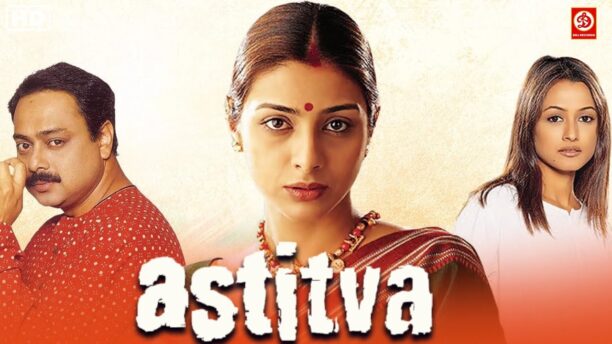 Subhash K Jha looks back at Astitva, which rleasedin 2000 and focuses on how its theme of female empowerment has not dated (but its feminist postures have).
Subhash K Jha looks back at Astitva, which rleasedin 2000 and focuses on how its theme of female empowerment has not dated (but its feminist postures have).
Astitva meaning identity, remains one of the best, least self aware performances of Tabu. This was a time when Tabu, the great actress that she is, was largely unaware of her greatness. Back then she worked more by instinct than craft, in Atitwa and also in Madhur Bhandarkar’s Chandni Bar.
In both these neo-classics of their times, Tabu’s performances were uncontaminated by narcissism. She deep-dived into her characters and emerged spontaneously with whatever the characters had to say.
That said, Astitva remains problematic but pertinent. I remember Satyajit Ray was once asked about Madhabi Mukherjee’s character in Charulata having an affair with her young brother-in-law . Ray had spoken about how as a young filmmaker he was eager to score feminist points in his cinema.
Some such creative vanity guides Mahesh Manjrekar’s hands in Astitva as he glides with enthusiastic elegance through his heroine Aditi Pandit’s life. Initially, Aditi is shown to be docile and passive in her marriage to Srikant (Sachin Khedekar). She is the lamb-like housewife , the obedient door-mate who breaks free when her husband and grownup son gang up against her after an exta-marital affair from the past is revealed.
We are told in a pointedly poetic flashback that Aditi had a torrid affair with her music teacher Malhar (and Yaman to that) while Srikant was away on a business trip. Would it not have happened if Srikant had worked from home?
Significantly, the marital digression (if we may call it that) is not attributed to loneliness alone. Aditi is no Charulata. Physical needs are also addressed. This is a unique viewpoint in Indian cinema where carnal desires in women are expunged from the narrative. Admirably, Aditi takes responsibility for her behaviour and is willing to pay the price.
No, the problem is not with the adultery angle (dealt with the intrepidity and honesty last seen in Aparna Sen’s Paroma). The salient snag in an otherwise credible and convincing feminist trea-tease , is the manner in which Aditi’s tress-past raises its head.
Malhar (Mohnish Behl , trying hard to look like a raga-muffin) dies leaving all his property to a woman whom she had known briefly(albeit intently) in her husband’s absence.
What kind of an idiot would do something so incriminating and bound to cause havoc in his married paramour’s life? It was as though Malhar wanted to mock Aditi’s husband rather than honour his love for her.
This is a fatal flaw in Astitva and an inexplicable discrepancy in a screenplay which wants to says so much on woman’s ownership of her emotional and physical territory but ends up too awed by its leading lady’s commanding presence.
Perhaps, Mahesh Manjrekar could go back to Astitva and address Malhar’s behaviour.








